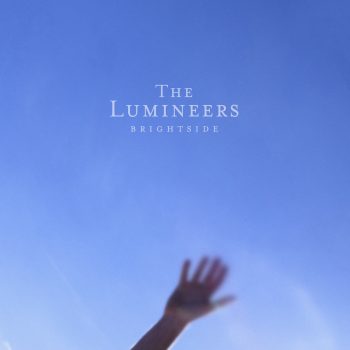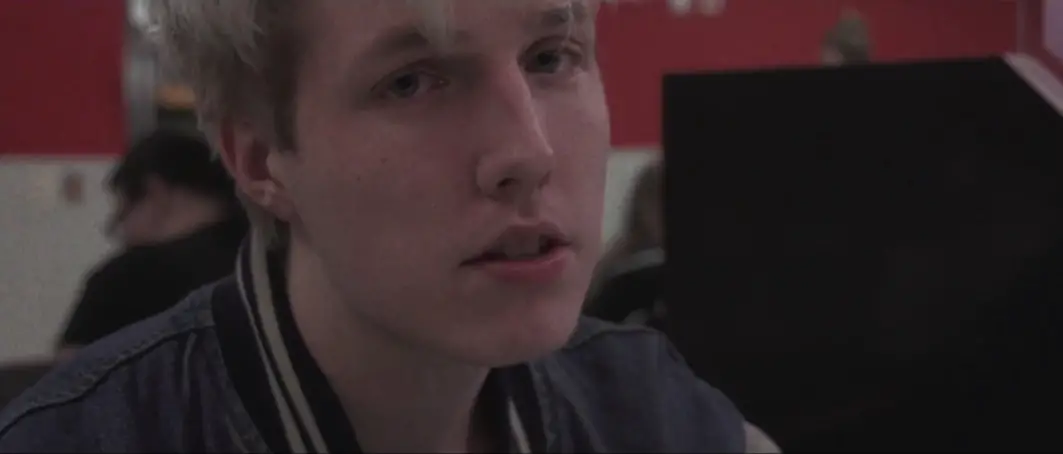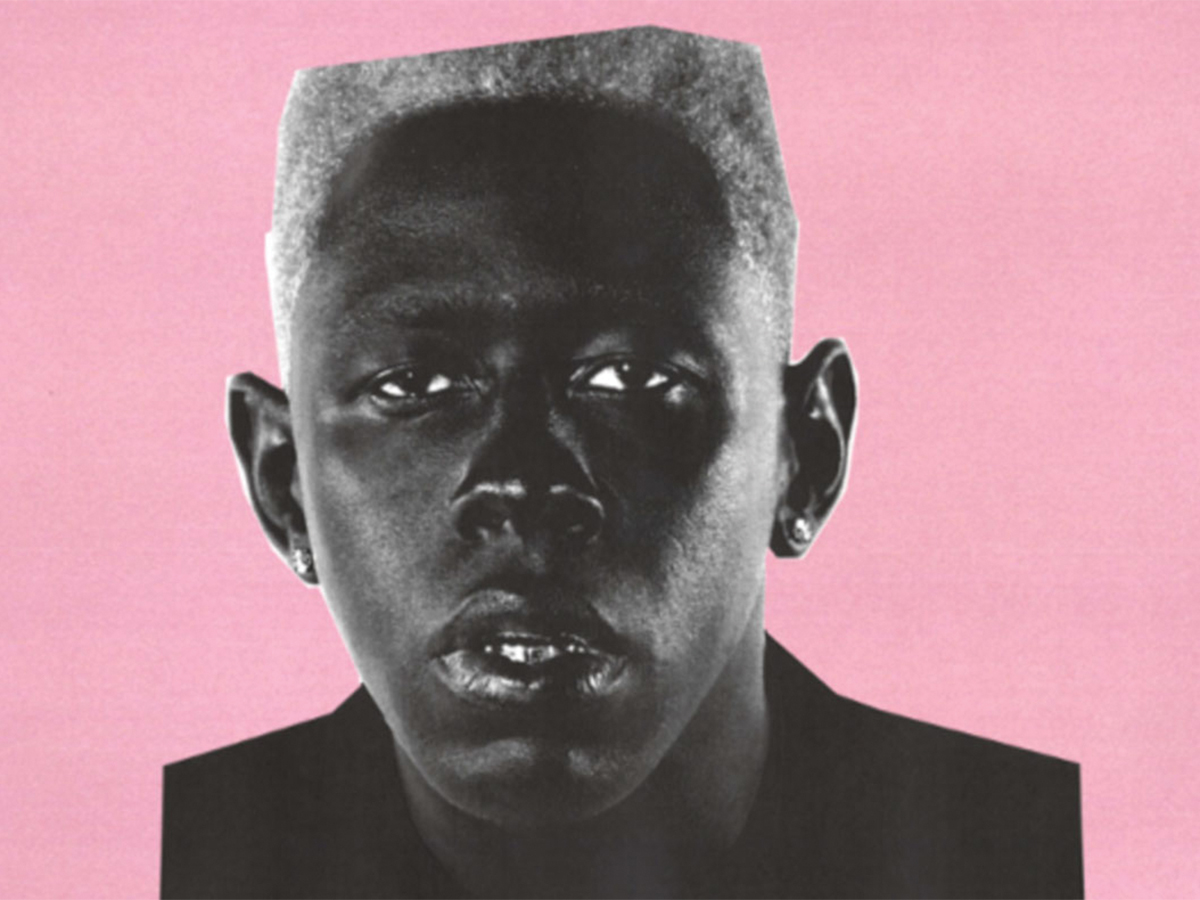The Lumineers’ Wesley Schultz speaks to Atwood Magazine about the moments that shaped the band’s hopeful, uplifting, and cathartic fourth album ‘BRIGHTSIDE,’ a comforting cinematic record that feels “more carefree and less calculated,” because it was.
Stream: “BRIGHTSIDE” – The Lumineers
We had this thesis of heat. We just wanted something that had inertia to it. The whole album just felt like it flew by.
Cinematic, articulate, precisely planned, deep, relatable, and carefully curated: These are words that come to mind when thinking of albums like III and Cleopatra from The Lumineers. While these terms all hold true in their latest body of work, there is a new word and perhaps one that most strongly represents the fire that is their fourth studio album, BRIGHTSIDE, and that word – one we all need so desperately right now – is: Brevity.

I can see it in the air
Every word was like a smoke from a cigarette
You were blowin’ in your hands
The heater broke in the Oldsmobile
And the light in your eyes
Alone on the freeway
I was stranded in the bed
You were listening to “The Dark Side of the Moon”
I could barely see your eyes
Psilocybin in a hotel room
Released January 14, 2022 via Dualtone Music Group, Brightside follows 2019’s III (which Atwood Magazine previously described as a “sonic and cinematic masterpiece”) and various solo projects from members Westley Schultz and Jeremiah Fraites, arriving at the top of the year as The Lumineers much-anticipated fourth full-length LP.
From signature Lumineers-sounding songs like “BIRTHDAY” (with a hint of The Beatles and an outro for the ages) to “ROLLERCOASTER” – one of the most peaceful tracks, despite its title – this album takes us through the beauty and the devastations of life. Each of Brightside‘s songs takes on a life of its own, with bigger sounds and wider ranges than we’ve ever seen before from The Lumineers. “NEVER REALLY MINE” will break your heart, and “WHERE WE ARE” will help make you feel a little less alone.

Atwood Magazine had the opportunity to sit down with lead singer Wesley Schultz to discuss the album and how The Lumineers found this brevity – by creating this record in a way they had never done before. “We had this thesis of heat,” he explains. “We just wanted something that had inertia to it. The whole album just felt like it flew by. We kept searching on how to piece it together and cobble it together so that it really had that thing where when it ends, you’re ready to hear it again.”
The Lumineers succeeded. As soon as Brightside‘s final song “REPRISE” plays, you are ready to start right back at the start with the titular opener, “BRIGHTSIDE.”
Speaking with Atwood Magazine, Schultz shared everything from the minute details of lyrics and melodies in specific songs, to heavier topics such as how a devastating trauma he went through led to a song that – unfortunately – a lot of the world can relate to right now. We discussed how hope is so strong right now because we need it more than ever. The album balances the darker moments with the brightest flares of hope, making Brightside timeless, as there will never be a moment where these two things are not at battle.
Schultz and I could have chatted on details of this beautiful body of work for hours, but the time that we did have brought a meaningful and spirited conversation.
My favorite albums were born out of pain and trauma that are somehow able to resonate down the road. That is what we hope to do with BRIGHTSIDE.
— —
:: stream/purchase BRIGHTSIDE here ::
Stream: ‘BRIGHTSIDE’ – The Lumineers
A CONVERSATION WITH THE LUMINEERS

Atwood Magazine: BRIGHTSIDE. I absolutely love this album. Coming off of III and Cleopatra, both of which were so cinematic, BRIGHTSIDE feels like it has a brevity to it, kind of like it’s what we all need right now. What was it like shifting from III to this?
Wesley Schultz: This is more childlike. It’s where the brevity comes from. It feels more carefree and less calculated, because it was – it was more a stream of consciousness kind of album that flowed out instead of being poured over and written to death.
I think for us it became our own sense of comfort to make these songs. A lot of the songs in the first couple records were sort of us writing lyrics trying to root ourselves on though that hard time of trying to come up and make it. It was almost trying to tell ourselves delusionary at times, “You can do it.” That message starts to change and shift as you make more records.
This one is more about the idea of not ignoring a situation and acknowledging that there is this insane trauma that is happening around the world that no one is getting out of it unscathed. At the same time, there is also this weird hope within all of us right now, this need to breathe and how we’ll do anything for that next breath, and I feel like as down as it can feel right now all of us also have this drive innately to feel hope. We were trying to strike that chord of the balance between destruction and pain along with hope.
Yeah absolutely, everyone is trying to hang on to hope while getting bad news every day.
Wesley Schultz: Yeah. And I think a lot of the writing was subconscious. Even in something like “BIG SHOT,” he’s saying everyone was in the band, but all of this could go away. “All the things you said to me, the manifest and destiny, well, all of this could go away right now.”
All the things you said to me
The manifest and destiny
Well, all of this could go away right now
And everyone was in the band
And I was on another planet
And then you, were all alone
And you wanna be a big shot
You wanna be the big man
You wanna hold a big gun
You gotta have a quick hand
You wanna be the big shot now
The chosen one your mother loved the most
After all
We were trying to strike that chord of the balance between destruction and pain along with hope.
Yes, and that is exactly what we’ve been shown over the past two years. Anything could just go away in the matter on a moment.
Wesley Schultz: Yes, the fragility of so many things. I was in a bad car accident with my wife and that is a lot of the story telling around the song “Where We Are” and the whole album. It works because we have all kind of been in this trauma where you’re driving and just worrying about what song you’re going to play next and then all the sudden a car flies off the highway starts hydroplaning. Our car rolled a couple of times, so now instead of thinking about what song I’m going to play next, I’m wondering if I’m going to live. It all happened so fast, but then you spend so much time afterword’s unraveling it. Fortunately, professionals like an accident attorney can help you on the legal side of the accident. My wife was really scared of driving for a while, she still is, and it’s like all these different things happened because of that one traumatic moment. I feel like in a weird way we all got into this traumatic accident together and that has caused all this other stuff to happen. So, I think that “Where We Are” weirdly works right now because it’s like what happened to the rest of the world — it happened in an instant just like covid did.
My favorite albums were born out of pain and trauma that are somehow able to resonate down the road. That is what we hope to do with BRIGHTSIDE.
Unfortunately, pain, trauma and hope are timeless topics. More so present right now, but I believe with the way that this album was written it will have a very long life to it.
I wanted to ask you about “BRIGHTSIDE” the song. After listening to the full album I feel like it’s not only the perfect lead single, but also the perfect track 1 to introduce this body of work. It very much feels like the young love story that kicks off an album full of different kinds of love/heartbreak stories. I’m curious if this was one of the earlier songs you wrote for the album or if it kind of became the one to kick it off later in the process.
Wesley Schultz: That one surprised us – I thought “BRIGHTSIDE” was going to be a slow burn building track. I thought of that song “Fix You” by Coldplay and how it’s very unassuming in the beginning and then it gets so big. So, I was thinking it was going to be kind of like that. But what was great about this song and album in general is that we were not so rigid in the studio like we had been with previous albums. While I had that idea in mind, we were also curious of where it could go. So, we got in the studio and I had this pattern on the acoustic guitar and then Jer (Jeremiah Fraites, piano/drums) went in and played something similar to that pattern on the piano. So then I was able to play more open chords on the guitar. I was thinking of Neil Young and how he shaped his guitar playing off what else what going on.
The song was recorded in one day. We went from having this basic voice memo of me playing acoustic guitar, showing the producer and engineer. and by the end of the day, it was a finished song that sounded vastly different.
We’ve never done that. If people could see how boring and tedious it gets. Usually we know we have a song, but we’re trying all these different outfits on it. “BRIGHTSIDE” was a fever dream that flew at hyper speed. There was something so immediate about it that not every song had that made it so good to be the one to lead with.
To Jer’s credit, he’s so good at serving the song. We both believe that its only going to turn out right if you put your ego aside and serve the song. He is so capable of playing a lot of drumbeats, but in the past, he hasn’t done it as much because it hasn’t served the song. On “BRIGHTSIDE” and a lot of this album he was able to showcase a lot more of what he can do as more of the songs called for it.
We got a kick out of doing this one and had joy in playing it and you can kind of sense that on the recording. We saved all our recording energy for in the studio. It wasn’t all written to memory. We were learning as we went, and you can hear that in the track.
That absolutely comes through. I know you touched on this a bit, but I also want to talk about “WHERE WE ARE.” I love this one. As soon as I heard it, I felt like it was going to be an automatic sing-along and so fun at live shows. I also love the piano riff in it – it feels like the type of riff you build a song around. Tell me about the musicality of this one.
Wesley Schultz: Jer showed me this riff that he had put on a synthesizer, and I think it had been cello. As a place holder he was playing the piano and then it was one of those things where we were writing it remote and we’re usually remote because he lives in Italy now – so he would send me these ideas and then there would be a lot of time where he wasn’t available or I wasn’t you know we’re both asleep for a part of each other’s days so we were kind of in a different pattern there where I wasn’t getting my immediate feedback. So, I remember him sending me that and then I riffed over top of it just coming up with what could work around what he had written. It was one of the rare highs of quarantine. We knew it was going to be a special song and it gave us a lot of solace to be doing something where we felt like we really did something that day for the first time in quarantine.
I was excited about what Jer presented and the melody we put over it, and then it turned into kind of this strange anthem that neither of us saw coming. The hook is something that Jer had sung over a voice memo. He has a way of writing lyrics. He doesn’t always write a ton of them, but when he does, they are usually really direct and to the point. It’s this beautiful thing because I would never write lyrics like he does, but when I hear them, I always think they’re such good ideas. It’s a beautiful part of the collaborative process. Other people do things you would never do and the trick is knowing when those mutually are good. He sang,
Where we are
I don’t know where we are
but it’ll be ok
And I thought that is exactly what the song needed. It was perfect. It was so to the point and refreshingly earnest and honest. And again, a perfect example of what we were talking about earlier; the person being basically disoriented but is holding onto hope, which is the essence of the whole album.

It’s such a simple statement but it holds so much.
Wesley Schultz: Yeah. There is something about it that is profound. And the great lyricist like Dylan, Leonard Cohen–they find these phrases that we might use every day, they use them the right way and all the sudden it takes on a new meaning. Like Jer, with “NEVER REALLY MINE.”
I was just going to bring up the line, “You were never really mine.”
Wesley Schultz: Yeah. He sent me this simple voice memo and it was almost like reggae – it was like Jimmy Buffet. I was like that would just never come out of my mouth, but it’s so great so let’s do something with it. I sent him back that verse almost immediately and it just popped out. The reason I liked the song right off the bat is because it wasn’t what you expected. The hook is really subdued, and the verses are loud. It’s so counter intuitive but it makes you lean into it.
With an album like this we’re trying to find something that is distinct over anything else, so it was like peaking our curiosity. We wondered why the loud verses and quiet chorus was working when usually you have to do the opposite to make a chorus work. It was just being open to it in the same way to being open to “BRIGHTSIDE” changing its form.
The whole album kind of unfurled in a way and we let it instead of trying to control it. So yeah, I think that innocence came through because we were ready for it. In the past there was a lot more of trying to tame this thing; the process for BRIGHTSIDE was wilder.
That absolutely comes through. People are going to love this album. Thank you so much for your time.
Wesley Schultz: Thank you, Kelly!
The whole album kind of unfurled in a way – and we let it, instead of trying to control it. I think that innocence came through because we were ready for it. In the past there was a lot more of trying to tame this thing, the process for BRIGHTSIDE was wilder.
— —
Talking with Wesley Schultz is a dream for those of us invested in the details of The Lumineers’ process and their music.
He did not speed through any questions, instead answering each thoughtfully and with prudence, as it is evident that he cares so deeply for this body of work and how it was made. Brightside comes out Friday, January 14. It has been a long time coming, but we can assure you it is worth the wait.
— —
:: stream/purchase BRIGHTSIDE here ::
— — — —

Connect to The Lumineers on
Facebook, Twitter, Instagram
Discover new music on Atwood Magazine
? © Danny Clinch
:: The Lumineers ::









